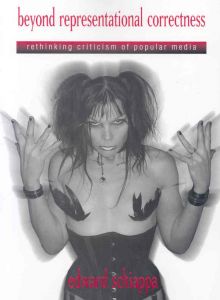
Edward Schiappa
SUNY Press, 2008
Representational correctness describes an implicit set of norms, including accuracy, purity, and innocence, that guide much of popular media criticism. In this provocative book, Edward Schiappa argues that representational correctness is unproductive, antagonistic to audience research, and typically disconnected from relevant social psychological or mass communication theories. Analyzing criticisms of such television shows as Will & Grace and Queer Eye for the Straight Guy, Schiappa argues that the norms of representational correctness can cause critics to miss the positive work such shows perform in reducing prejudice. He contends that too many critics focus on isolated scenes or interactions that perpetuate a stereotype without considering the larger work that films and television shows can accomplish. Schiappa concludes that pop culture critics need to engage in more audience research, draw from relevant research in social psychology, praise positive representations and programming, and promote critical media literacy in both classroom and public pedagogy.
On sale at SUNY Press and Amazon.com.




